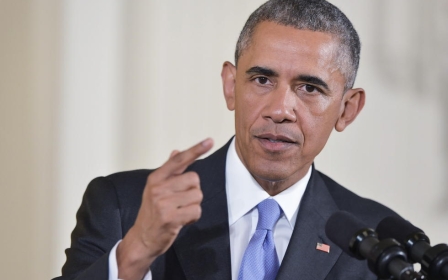Iran parliament passes nuclear deal

Iran’s parliament approved a historic nuclear deal with world powers on Tuesday, effectively ending debate among politicians over the agreement and paving the way for its formal implementation.
The motion to approve the Joint Comprehensive Plan of Action (JCPOA) was passed with 161 votes in favour, 59 against and with 13 abstentions, the official IRNA news agency and other media reported.
An early tally of the vote said 250 of Iran’s 290 MPs were present, with the numbers suggesting 17 members who attended did not vote at all.
The nuclear agreement between Iran and six world powers was struck on 14 July after almost two years of diplomacy, but politicians in both the United States and Tehran insisted on voting on it.
The deal, which will lift nuclear-related sanctions on Iran in return for curbs on its atomic activities – the Islamic republic denies seeking a bomb – has received a rocky ride in the US and Iran.
Members of the US Congress failed in September to torpedo the deal.
In Tehran, conservative politicians repeatedly warned of holes in the text of the agreement and criticised President Hassan Rouhani for suggesting MPs were deliberately delaying the deal.
In selling the agreement to sceptics, Rouhani's government said its negotiators protected the future of Iran’s nuclear programme while ensuring sanctions on the country would end.
However, as late as Sunday, parliament was the scene of fiery clashes over the deal.
Ali Akbar Salehi, head of the country’s Atomic Energy Agency, went on the attack for the government after he and other officials were accused by politicians of having capitulated to the West.
So-called red lines for the talks were laid down by Iran's Supreme Leader Ayatollah Ali Khamenei and the Supreme National Security Council that he oversees.
Tuesday's motion, titled Iran’s Plan for Reciprocal and Proper Action in Implementing JCPOA, allows the government to proceed, IRNA reported.
Iranian officials have said sanctions should be lifted by the end of the year, or January 2016 at the latest.
However, Iran also has to satisfy the International Atomic Energy Agency, the UN nuclear watchdog, of the exclusively peaceful nature of its atomic programme.
The IAEA faces a 15 December reporting deadline to resolve what it had termed "ambiguities" over Iran’s past nuclear activities.
Stay informed with MEE's newsletters
Sign up to get the latest alerts, insights and analysis, starting with Turkey Unpacked
Middle East Eye delivers independent and unrivalled coverage and analysis of the Middle East, North Africa and beyond. To learn more about republishing this content and the associated fees, please fill out this form. More about MEE can be found here.




